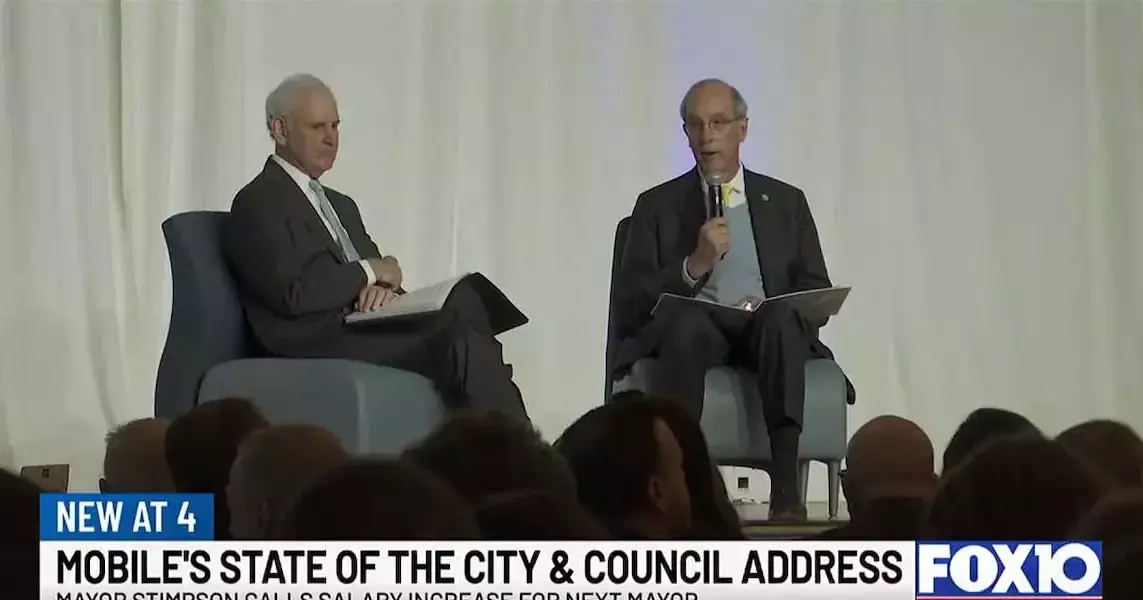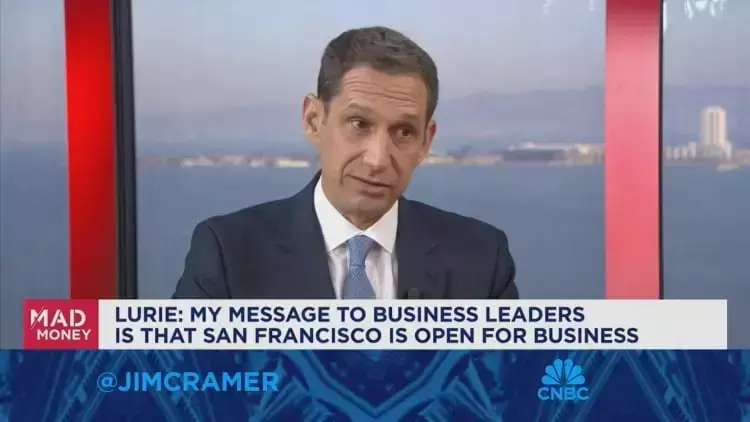Mayor Sandy Stimpson has made a pivotal move by advocating for an augmented mayoral salary, suggesting that it is crucial for drawing high-caliber candidates and maintaining the city's competitive edge. At the yearly "State of the City and County" gathering organized by the Mobile Chamber, he stressed the necessity of reevaluating the existing pay framework. With no intentions of seeking another term, he sees this as the perfect juncture to push for a reform that will not personally benefit him but will yield enduring benefits for the city.
Competitive Remuneration to Secure Elite Public Servants
Transformation in Perspective on Leadership Pay
Throughout his tenure as mayor, Sandy Stimpson's views on remuneration for leadership roles have evolved. Initially, when campaigning, he promised not to take a salary, failing to grasp the intricacies of the position. However, as he experienced the extensive duties associated with governing a city with a $5.4 billion economic impact, he began to reassess his position. The intricacy of managing a city's finances, promoting economic growth, and meeting communal demands necessitates a leader who can fully commit without financial distractions. Stimpson now contends that equitable pay is vital for enticing individuals capable of tackling these challenges effectively. His call for a salary hike reflects a deeper understanding of the demands on public servants. In the current political climate, mayors are often tasked with mediating conflicting interests, negotiating with various parties, and making pivotal decisions that affect many. Without proper compensation, the potential candidate pool might be restricted to those who can afford the role's demands without financial strain. Stimpson's proposal aims to expand this talent pool, ensuring the best leaders are willing and capable of serving.
Economic Context and Comparative Analysis
Stimpson contextualized his proposal by noting that Mobile's economic landscape has drastically changed since 1985, when the mayor's salary was fixed at $60,000—approximately $190,000 in today's terms. The city now oversees a budget exceeding $300 million and influences billions more in economic activity. Comparatively, other cities with similar profiles offer higher salaries for their mayors or top executives. Baton Rouge's mayor earns $175,000, and Savannah's city manager earns $260,000. These figures highlight the importance of aligning Mobile's compensation with market standards to remain competitive in securing top-tier leadership. Moreover, Stimpson pointed out that the current salary of $125,000 is below what many comparable cities provide. This discrepancy could discourage qualified candidates from pursuing the role, potentially resulting in a less effective administration. By adjusting the salary, the city can demonstrate its commitment to valuing leadership and governance, fostering greater confidence among residents and investors. Stimpson intends to present a detailed proposal to the City Council soon, emphasizing the urgency given the six-month countdown to the August election.
Public Perception and Political Considerations
While Stimpson's proposal has received support from some, it also raises concerns about public perception and political sensitivity. Connie Hudson, a Mobile County Commissioner and mayoral candidate, agrees that a reasonable increase is warranted. However, she warns against setting the salary too high, which could lead to public skepticism regarding the motivations for public service. Finding the right balance is essential; the aim is to ensure the salary is sufficient to attract capable leaders without appearing excessive or self-serving. Public trust in government is built on transparency and fairness. Stimpson's approach, which includes presenting comparative salaries and economic context, shows a commitment to justifying the proposed increase with data and reasoning. By framing the discussion around the broader benefits to the city, he seeks support from both council members and citizens. Ultimately, the success of this initiative will hinge on its resonance with the public and whether it is viewed as a necessary step toward improving leadership quality in Mobile.
Long-Term Implications for Future Leadership
Stimpson's proposal has significant implications for future mayoral races. By advocating for a salary increase, he hopes to foster a more enticing environment for potential candidates. A higher salary would enable individuals to consider the role without personal financial concerns, thus expanding the pool of applicants. This could lead to a more diverse and qualified field of candidates, ultimately benefiting the city's governance and development. Stimpson envisions a future where Mobile can compete with other major cities in attracting innovative leaders. As the city continues to grow and evolve, having a robust leadership structure becomes increasingly important. By addressing the compensation issue now, Stimpson is setting the stage for a stronger, more resilient city administration capable of navigating future challenges.
Recent
See All2025-03-20
Economic Strength Bolsters Market Upturn
2025-03-20
The Importance of Emergency Funds: Why You Should Start Today
2025-03-20
Navigating the Global Economic Recovery: What’s Next for 2025?
2025-03-20
The Role of ESG Investing in Shaping the Future Economy
2025-03-20
The Impact of Artificial Intelligence on the Financial Sector
2025-03-20
The Future of Cryptocurrencies: Are They a Safe Investment?
2025-03-20
San Francisco’s New Mayor Pledges to Boost Public Safety and Revitalize Local Economy
2025-03-20
Sitka Gears Up for a Possible Special Election Regarding Cruise Ship Restrictions
2025-03-20
Why Diversification Remains the Key to Investment Success
2025-03-20
Exploring the Investment Terrain: Key Strategies for 2025
Newsletter
Get life tips delivered directly to your inbox!











